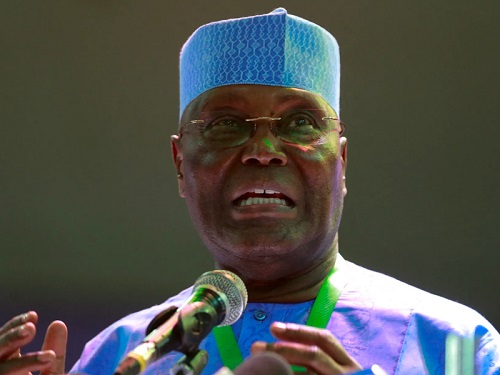Atiku Abubakar, the presidential candidate for the Peoples Democratic Party (PDP) in the 2023 elections, has accused President Bola Tinubu of failing to address Nigeria’s economic challenges. Atiku argued that he offered better policy options during the campaign compared to Tinubu’s “morbid prescriptions.” His comments came in response to a statement made by Tinubu’s Special Adviser on Information and Strategy, Bayo Onanuga, who labeled Atiku as the “opposition-in-chief” due to his failure to become Nigeria’s president.
Atiku’s spokesperson, Paul Ibe, stated that Atiku’s policy document, titled “My Covenant With Nigerians,” provides a clear roadmap for economic transformation and outlines the challenges facing the country. Ibe argued that Atiku’s policies contrast sharply with Tinubu’s and accused Tinubu of not understanding the reforms he implemented.
During the campaign, all major presidential candidates endorsed the removal of fuel subsidies and the unification of exchange rates. However, Atiku anticipated that these policies could negatively impact micro and small enterprises in the informal sector, as well as vulnerable families and individuals with no income. He pledged to support Nigeria’s businesses by creating an Economic Stimulus Fund with an initial investment capacity of approximately $10 billion. Tinubu, on the other hand, promised a substantially smaller amount of N125 billion ($100 million) to help micro, small, and medium-sized enterprises (MSMEs), but this promise has yet to be fulfilled.
Atiku also pledged to implement a social investment program to support the poor and vulnerable in Nigeria, including those affected by displacement and the suffering of internally displaced persons (IDPs). However, Tinubu’s cash transfer program was marred by allegations of corruption.
The consequences of Tinubu’s economic policies have been felt in Nigeria, with companies like Unilever, GlaxoSmithKline, Procter & Gamble, and Sanofi-Aventi citing foreign exchange complexities, security concerns, and high operational costs as reasons for exiting the country. Additionally, the annual inflation rate reached a nearly 30-year high of 28.9% in December 2023, with food prices soaring to 33.9%, the highest level since August 2005.
Atiku accused the presidency of resorting to blame games and lamentations instead of taking responsibility for the country’s economic woes. He argued that Tinubu’s leadership failures in managing the economy have contributed to Nigeria’s current challenges. Atiku emphasized the need for leadership that can anticipate impending crises and respond effectively.
Overall, Atiku claimed that his policy options were superior to Tinubu’s and pointed to the negative consequences of Tinubu’s economic policies as evidence of his failure as a leader.



